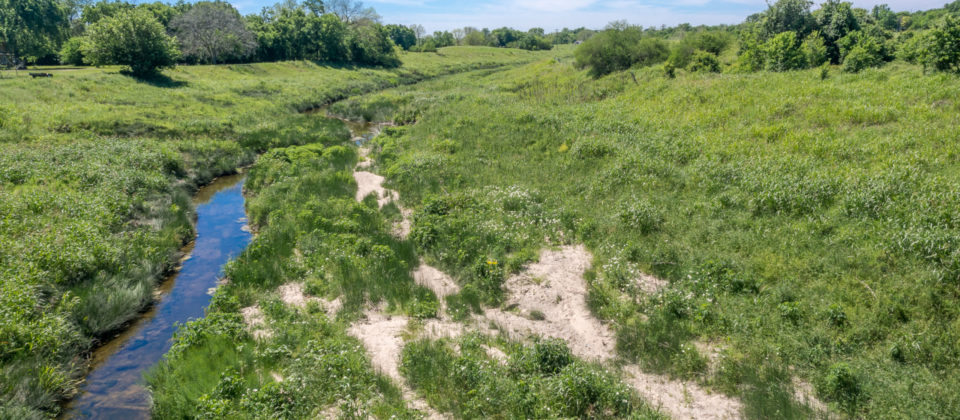
A Riparian and Stream Ecosystem Education Program training realting to land and water stewardship in the Lavaca River watershed will be held Feb. 27 at the Texas A&M AgriLife Extension Service office in Edna. (Texas Water Resources Institute photo)
The Texas Water Resources Institute, or TWRI, will host a free Texas Riparian and Stream Ecosystem Education Program training from 8 a.m. to 4 p.m. Feb. 27 for area residents interested in land and water stewardship in the Lavaca River watershed.
The morning session will be at the Texas A&M AgriLife Extension Service office for Jackson County, 411 N. Wells St., Suite 111, Edna. The afternoon session will include a creekside walk and presentations.
Clare Escamilla, TWRI research associate at the institute’s San Antonio office, said the training is co-hosted locally by the Lavaca River Watershed Partnership and the AgriLife Extension office in Jackson County.
Attendees must RSVP by Feb. 24 online at Texas A&M Marketplace or to Escamilla at 210-277-0292 ext.205 or clare.entwistle@ag.tamu.edu.
The program will include a lunchtime presentation. A catered lunch will be provided for $10, or participants may bring their own lunch.
Emily Monroe, AgriLife Extension program specialist with TWRI and watershed coordinator for the partnership, said Lavaca River is impaired due to not meeting the recreational standard for E. coli.
“A local stakeholder group has been working on a watershed plan to address urban and rural management practices to benefit instream water quality,” Monroe said. “This training is a good opportunity for those interested to learn more about best management practices beneficial to water quality.”
Escamilla said proper management, protection and restoration of these areas directly influences water quality and quantity, as well as stabilizes stream banks and improves fish and aquatic habitats and communities.
“The goal of the workshop is for participants to better understand riparian and watershed processes, the benefits of healthy riparian areas and what resources are available to prevent degradation while improving water quality,” she said.
Escamilla said the institute is able to offer the training without cost thanks to program funding provided through a Clean Water Act nonpoint source grant from the Texas State Soil and Water Conservation Board and the U.S. Environmental Protection Agency.
Mike Hiller, AgriLife Extension agent in Jackson County, said participants will receive a certificate of completion and appropriate continuing education unit certificates at the conclusion of the training.
The training offers many types of continuing education units, including three units — two general and one integrated pest management — for Texas Department of Agriculture pesticide license holders. It offers one unit from TWRI, seven credits from Texas Floodplain Management Association, seven hours for Certified Crop Advisors, and six hours for Texas Nutrient Management Planning specialists. The program may also be used for continuing education units for professional engineers.
The riparian education program is managed by TWRI, part of Texas A&M AgriLife Research, AgriLife Extension and the College of Agriculture and Life Sciences at Texas A&M University.
For more information, contact Escamilla or visit the Texas Riparian Association’s website or Facebook page.
-30-


